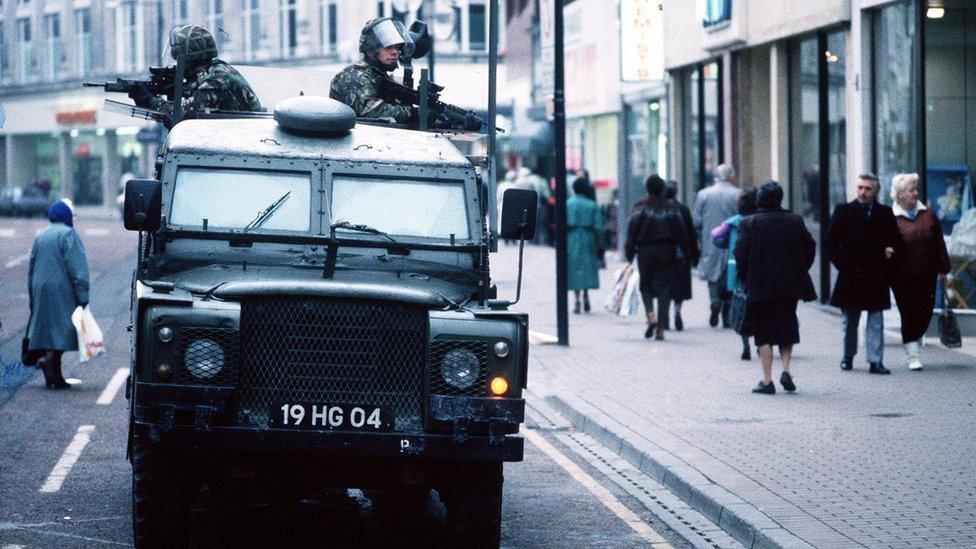Patsy Kelly: Family hails vindication of Police Ombudsman report
- Published
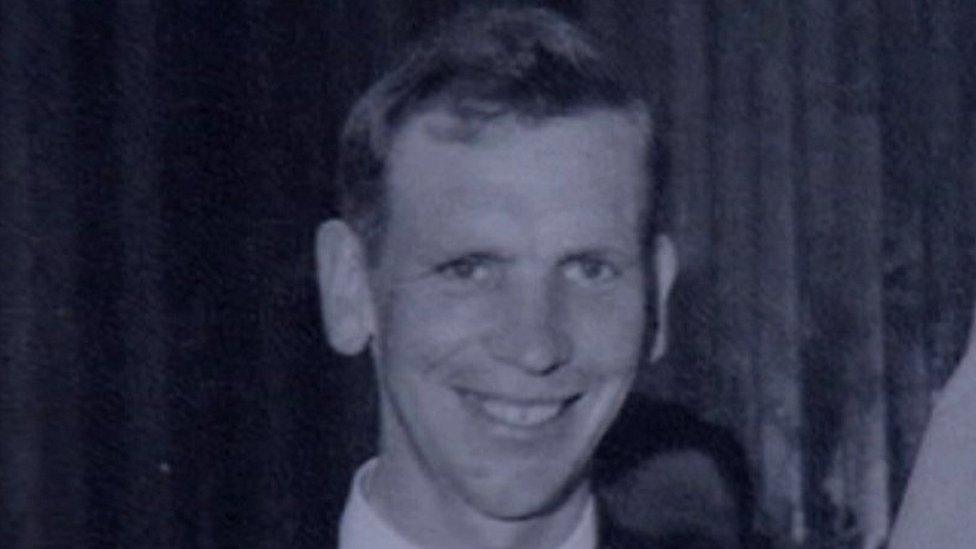
Patsy Kelly's body was found in a County Fermanagh lake about 20 miles from where he worked in County Tyrone
The family of a nationalist politician murdered almost 50 years ago have said they feel vindicated by a Police Ombudsman report, external that found they were failed by "a wholly inadequate" police investigation.
Patsy Kelly was shot dead after being abducted on his way home from work, external at a pub in Trillick, County Tyrone in 1974.
The ombudsman also found there was evidence of collusive behaviour.
Patsy Kelly's son said it was one of the report's most damning elements.
"My God, how badly has my family been let down by men in uniforms?" his son, also called Patsy Kelly, said when speaking to BBC's Talkback programme.
What happened to Patsy Kelly?
The 35-year-old's body was found weeks after his abduction on 10 August 1974, weighed down in Lough Eyes, about 20 miles away in County Fermanagh. He had been shot six times.
No-one has ever been convicted.
The father-of-five's family have always been convinced that soldiers from the Ulster Defence Regiment (UDR) were responsible for the murder and that the police did not conduct a proper investigation because of this.
The family met Police Ombudsman Marie Anderson on Wednesday morning before her findings were made public.
Patsy Kelly's son, also called Patsy, says there must be a new inquest into the killing
What did the ombudsman find?
She found numerous "significant" investigative failings, including that the police had failed to verify the alibis of UDR soldiers suspected of involvement.
She also found evidence of collusive behaviour, as RUC special branch had withheld intelligence from the original murder investigation.
Ms Anderson also said there had been a failure to pursue forensic evidence, including a footprint at the scene of Mr Kelly's abduction which was from boots "associated with a type worn by members of the security forces".
Among the other failings were:
Failure to record detailed witness statements
Failure to link cases
Forensic failings including not making enquiries about footwear marks, failure to recover the boat at Lough Eyes and no record of fingerprint enquiries
Failure to make enquiries about an anonymous letter
'Latent' investigative bias on the part of the senior investigating officer
What has been said about the report?
Mr Kelly's son Patsy said the family felt "vindicated" but this was just one more step in the process of finding the truth.
He also said one of the most damning lines included in the report was in reference to collusive behaviour by the security forces.
"The state has acted to put as many obstacles and obstructions in our way for decades but today the truth, in some form, has come out," he said.
The next step will be the granting of a fresh inquest into his father's murder, Mr Kelly added.
He said that the report had not changed what the family believed happened.
"We still believe that it was carried out by the security forces and since 1974 has been covered up by members of the security forces."
Describing his father's work, Mr Kelly said: "He was an independent nationalist councillor who simply wanted to better his community for equality of jobs and housing those were the things that were motivating him on a daily basis."
Det Ch Supt Ian Saunders, head of the PSNI's Legacy Investigation Branch, said Mr Kelly was the "innocent victim of a brutal sectarian murder".
"Policing in 1974 operated in a very different context. Investigative standards for detectives and forensic opportunities were very different to those rightly expected today," he said.
"None of this seeks to excuse any inadequacies or failings in the original RUC investigation, it is simply to place them in the wider context of the time.
"Policing has developed enormously over the past forty nine years and the Police Service of Northern Ireland now have greatly improved policies and procedures which guide how we approach criminal investigations and I note the comments of the Police Ombudsman regarding the re-investigation in 2003-2005."

What is meant by collusive behaviour?
The term collusion has been raised in several official reports and inquiries related to the Northern Ireland Troubles over the past two decades - but what does it mean?
It is worth stating there is no offence of collusion, although it may involve a criminal act. It has been said to have many faces.
Generally, it covers a broad range of behaviours, from deliberate wilful actions to "a look the other way" approach.
There is no universally-accepted definition of collusion, but from 2003 onwards judges and others have spelled out what it means in a Northern Ireland context.
Related topics
- Published26 April 2023
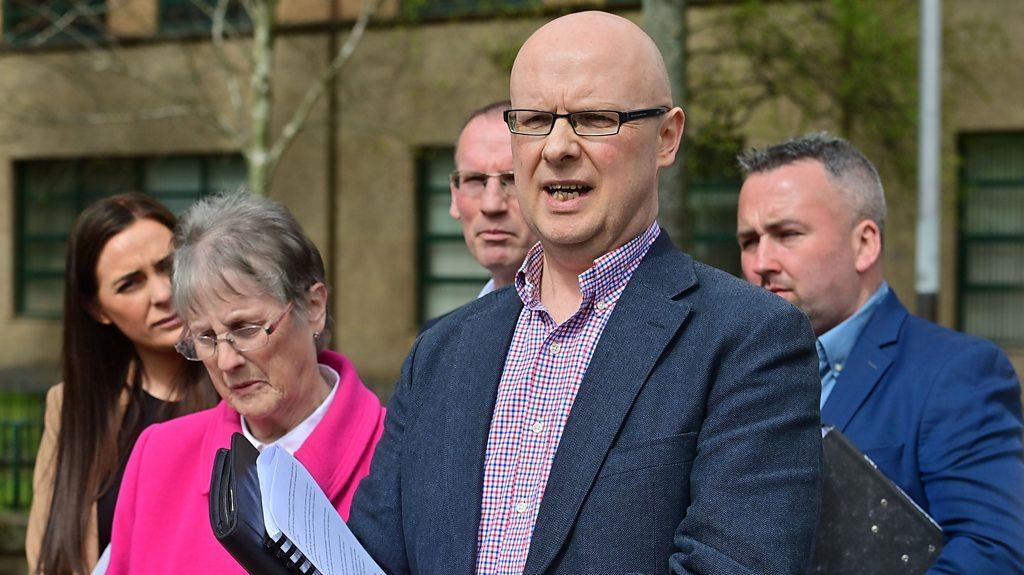
- Published14 November 2017
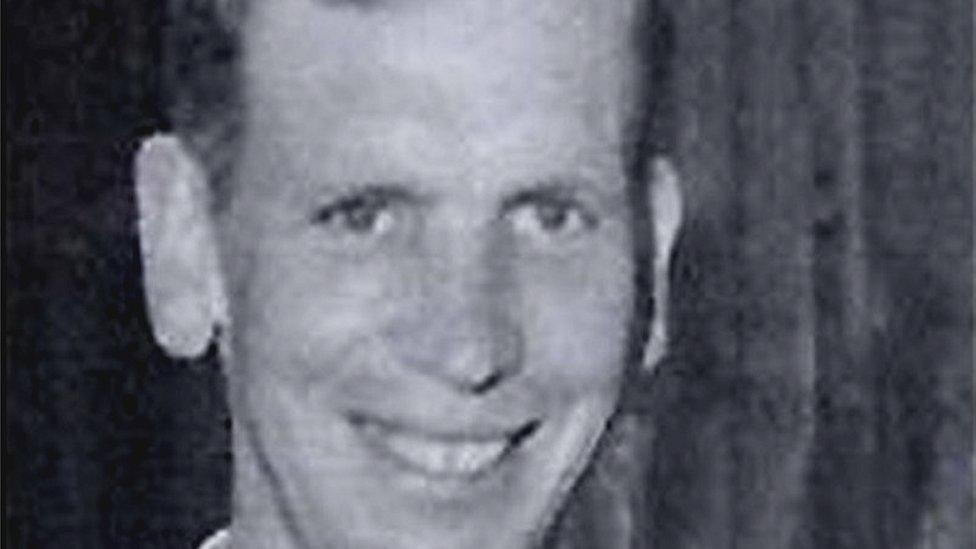
- Published26 April 2023
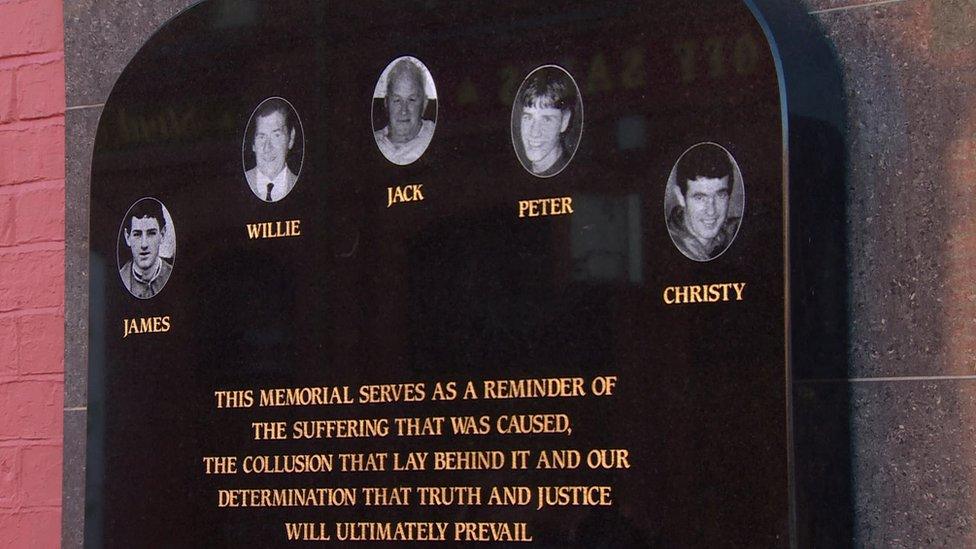
- Published26 April 2023
